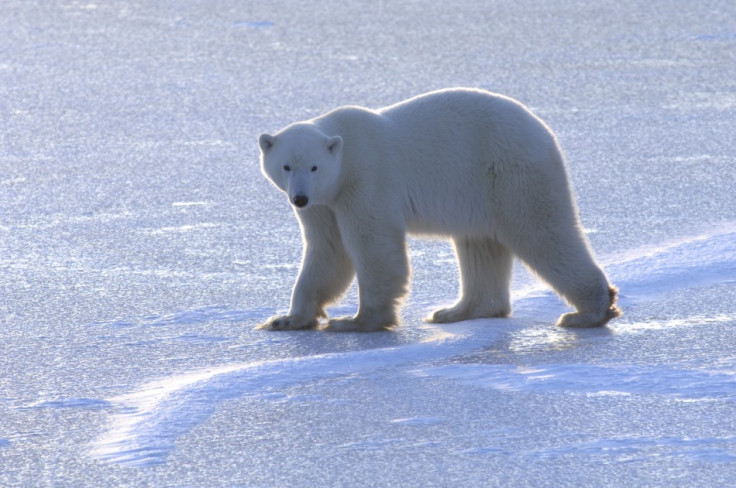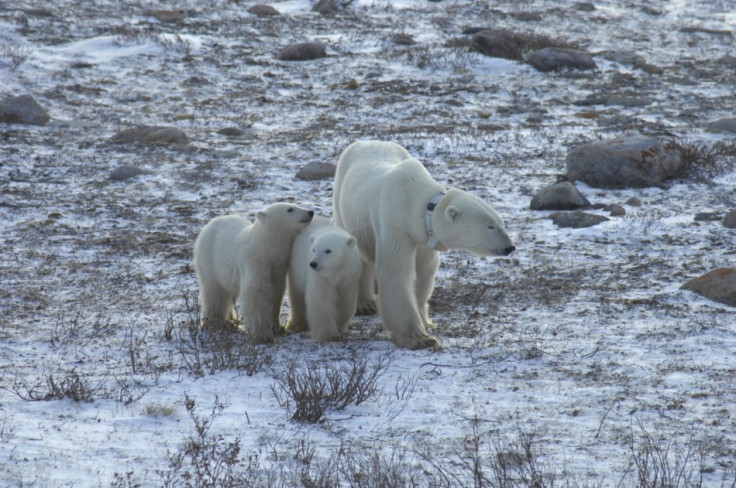Polar Bears Have to Pile on the Pounds to Survive Global Warming

Fat polar bears are more likely to survive than their slim counterparts in the struggle to cope with depleting sea ice levels.
The world's most southerly polar bears in Hudson Bay are spending less time hunting, eating and mating because sea ice is melting faster and not re-freezing until later, meaning they have to spend more time on land where there is no food.
Seth Cherry and his team from from the University of Alberta studied polar bears in Hudson Bay. Sea ice in this area melts completely each summer and re-freezes in late November or early December.
He said these conditions are challenging for polar bears, as they normally hunt seals living on the ice: "Although polar bears are excellent swimmers compared with other bear species, they use the sea ice to travel, hunt, mate and rest."
While polar bears have learned to adapt to the annual loss of sea ice by migrating onto land each summer, they are unable to hunt seas there, so must rely on fat reserves for months until the ice returns.
To study the polar bears, the team monitored the movements of 109 female polar bears with satellite tracking collars. They followed them between 1991-1997 and 2004-2009, while also tracking the concentration of sea ice.
Male polar bears could not be tracked because their necks are wider than their heads, meaning a collar will not stay on.

The researchers wanted to find out how earlier thawing and later freezing affects the polar bears' migration patterns.
Cherry said: "At first glance, sea ice may look like a barren, uniform environment, but in reality, it's remarkably complex and polar bears manage to cope, and even thrive, in a habitat that moves beneath their feet and even disappears for part of the year. This is an extraordinary biological feat and biologists still don't fully understand it."
Cherry said that the polar bear population in Hudson Bay has declined since the 1990s. There has also been a fall in the bears' body condition and fewer cubs have survived into adulthood.
"Defining precisely what aspects of sea ice break-up and freeze-up affect polar bear migration, and when these conditions occur, is a vital part of monitoring how potential climate-induced changes to sea ice freeze-thaw cycles may affect the bears.
"The data suggest that in recent years, polar bears are arriving on shore earlier in the summer and leaving later in the autumn. These are precisely the kind of changes one would expect to see as a result of a warming climate and may help explain some other studies that are showing declines in body condition and cub production.
"Climate-induced changes that cause sea ice to melt earlier, form later, or both, likely affect the overall health of polar bears in the area. Ultimately, for polar bears, it's survival of the fattest."
© Copyright IBTimes 2024. All rights reserved.






